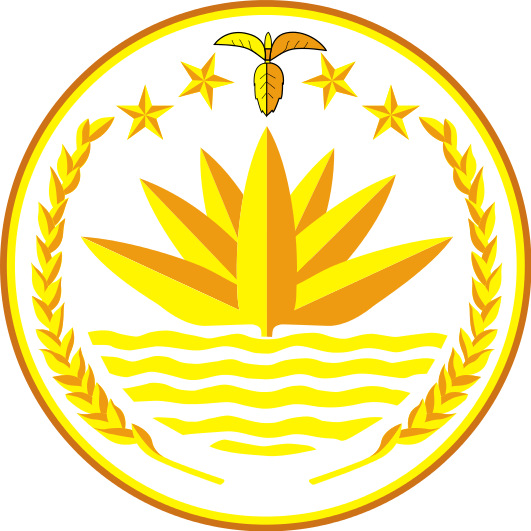Bangladesh Wikipedia page: "The Government of Bangladesh (Bengali: বাংলাদেশ সরকারBangladesh SôrkarGOB) is led by the Prime Minister, who selects all the remaining Ministers. The Prime Minister and the other most senior Ministers belong to the supreme decision-making committee, known as the Cabinet. The Government has three branches; the Executive branch, the Legislative branch and the Judicial branch."
Members:
Resources
Displaying 16 - 20 of 25Chittagong Hill Tracts Development Board Ordinance, 1976 (Ordinance No. LXXVII of 1976).
This Ordinance provides for the establishment of the Chittagong Hills Development Board and defines its internal organization and its functions.The Ordinance further provides for: the establishment of the Chittagong Hill Tracts Development Board Fund; powers of entry for inspection purposes; rule and regulation making powers of the Government and the Board; etc.
Local Government (Union Parishads) Ordinance, 1983 (Ordinance No. LI of 1983).
The Ordinance provides for the institution of a Union Parishad, an elected local Council, in rural areas and furthermore indicates the functions and tasks of these Parishads.The Ordinance further provides for: the internal organization of the Union; functions of Union Parishads; constitution of standing Committees; constitution of a Union Fund; offences and penalties; etc.
Chittagong Development Authority Ordinance, 1959 (E. P. Ordinance No. LI of 1959).
This Ordinance provides for the establishment of the Chittagong Development Authority and defines its internal organization and its functions.The Authority shall, in two years time, prepare and submit to the Government a Master Plan for the Municipality stating how the land should be used, including waterworks. Following approval, development and improvement programs for those areas shall be submitted to the government, complete with time scheduling and budgeting. The land so allocated shall not be destined to uses other than those approved under the program.
Acquisition and Requisition of Immovable Property Ordinance, 1982 (Ordinance No. II of 1982).
The Ordinance provides for the acquisition and requisition of immovable property to be destined to public purposes in the public interest. Acquisition shall be communicated by means of a notice affixed in convenient locations in order to inform of the intent of acquiring that property. Requisition for a limited period of time may be exercised by the appointed Deputy Commissioner, following Government’s approval, while no approval shall be necessary in case of an emergency. No property shall be kept in requisition for a period longer than two years.
Culturable Waste Land (Utilization) Ordinance, 1959 (E.P Ordinance XIII of 1959).
This Ordinance rules that land that has not been cultivated for at least two years shall be reclaimed by the Collector for a period not longer than one year from the initial declaration of acquisition, who can lease it to anybody for cultivating crops (food crops as per art. 2, clause ii). If the owner of the reclaimed land wants it back, he must notify his decision to the Collector no later than three months before the one-year expiration date, including the deposit of 50 TK/acre.


